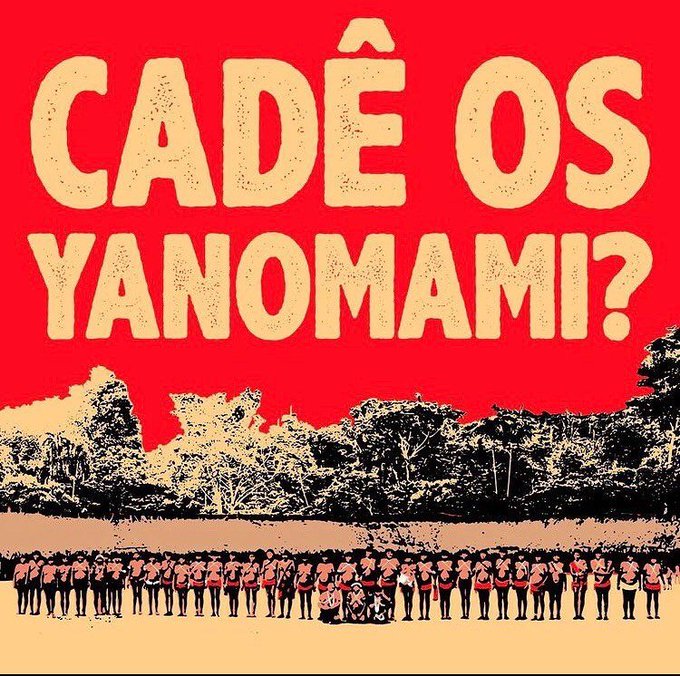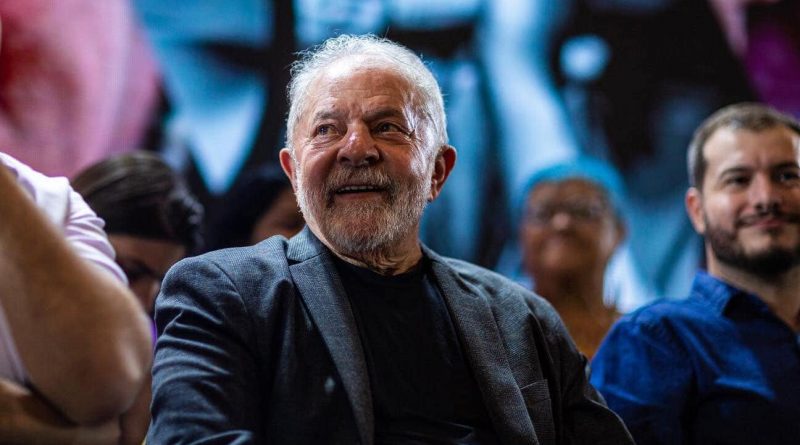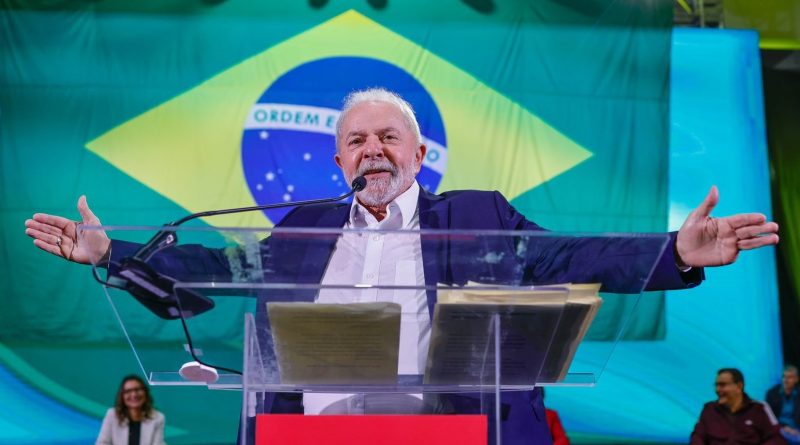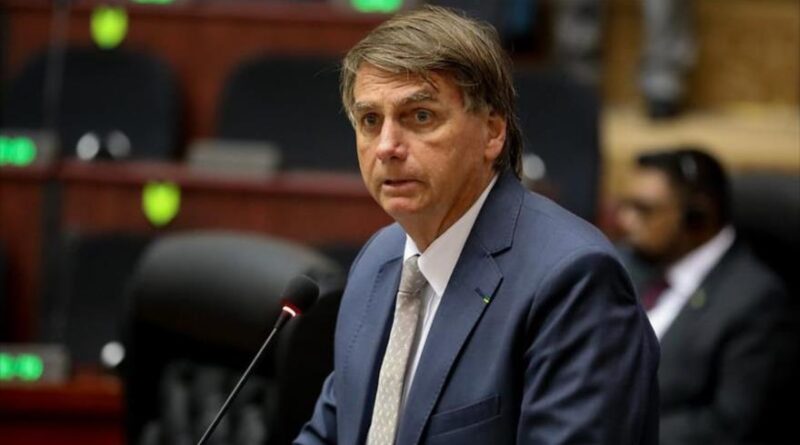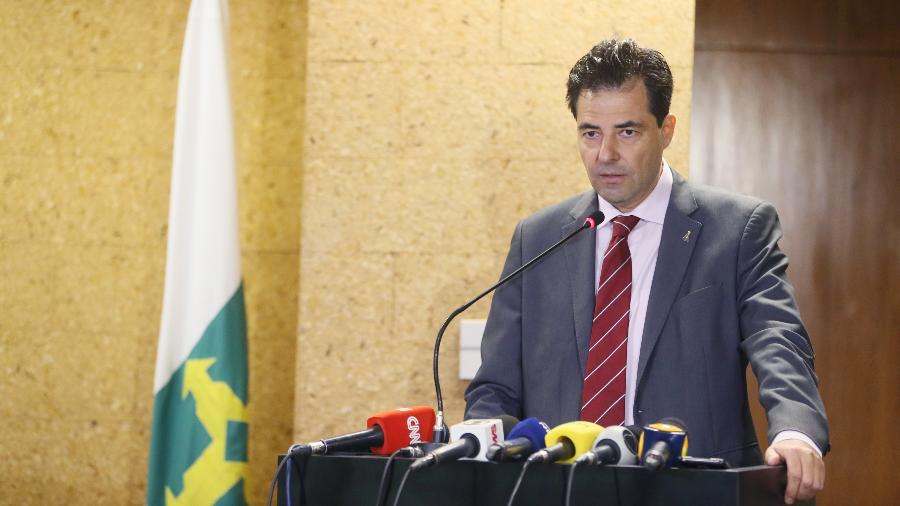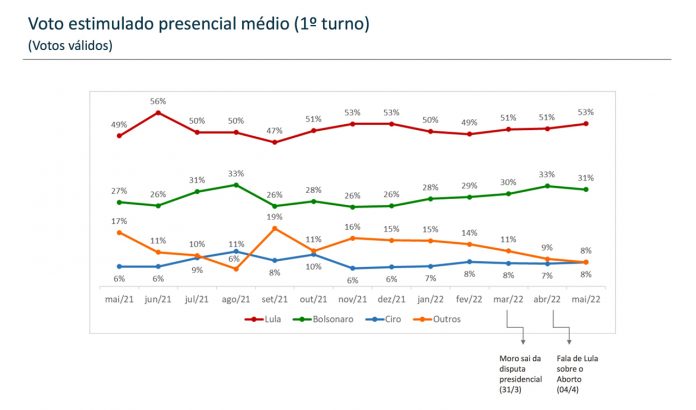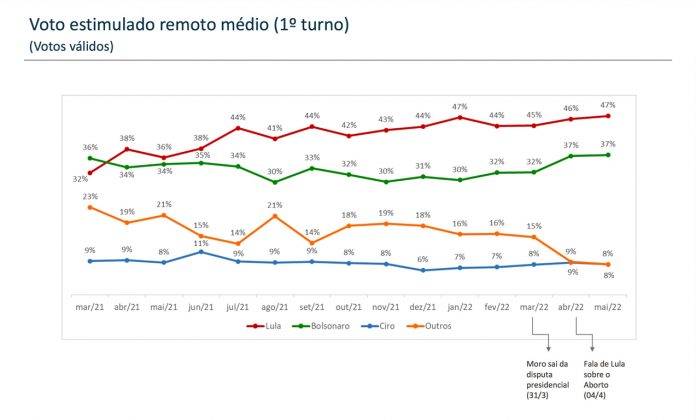The Neocolonial Game Behind Musk-Bolsonaro Rendezvous
By
NATHALIA URBAN
May 20, 2022
There was more to South African billionaire Elon Musk’s already bizarre meeting with Brazilian neofascist president Jair Bolsonaro than met the eye.
“We will coup whoever we want! Deal with it.”
Elon Musk on Bolivia, 24/7/2020
By Nathalia Urban
A day after being implicated in a sexual harassment scandal with a Space X worker, the US-based South African billionaire Elon Musk landed in Brazil for a meeting with Jair Bolsonaro.
The visit of the world’s richest man to Bolsonaro’s Brazil in an election year is officially part of the launch of a project involving Starlink, the satellite network of the Space X company, which he owns, which promises high-speed internet access in remote locations. In a post on Twitter, Musk said the project will connect 19,000 schools in rural areas and monitor the Amazon, but he did not explain how he will do this, and left suspicions and fears about such a man possessing technological control over the largest forest reserve in the world, and everything in it (including its subsoil).
Lithium Coup Part 2?
In 2020, after being accused of having participated in the coup plans that ended with the removal of the government of Evo Morales in Bolivia, Musk tweeted “We will coup whoever we want! Deal with it.”, reaffirming his interest in Bolivian reserves of lithium – a mineral used as a basis for the batteries that power his Tesla electric cars. But not only is lithium needed in the production of electric cars, the battery also needs nickel. As reported by the Observatório da Mineração “Vale S.A, which mines nickel within indigenous lands in Canada, profits from nickel in the Onça Puma project, in Pará, and contaminated the rivers of the Xikrin indigenous people, emerged as a recent partner of Musk. The long-term contract with Vale is a direct step towards securing the supply for Tesla vehicles and a planned 50% expansion in production. Additional details were not provided by either Vale or Musk.
The Brazilian mining company, privatised in the 1990s, will produce 190 tons of nickel in 2022. About 5% goes to the electric vehicle market, but the goal is to reach 40% in the medium term. According to Bloomberg, the mining giant confirmed the long-term agreement and said that the Tesla supply should cover 30% to 40% of ore sales.
The map of conflicts and environmental injustice in Brazil shows that Vale continues to seek new mining projects in the Amazon.
The Kayapó Xikrin do Cateté (self-styled Mebengôkre) denounced the destruction of the Cateté River in the State of Pará, an important economic, cultural and symbolic element for the life of that people – it was contaminated with heavy metals, harming the health of indigenous communities. The Xikrin have denounced the occurrence of conditions caused by excess nickel, such as lung and nasal cavity cancers, allergic skin lesions, eczema, dermatitis and dermatoses, rhinitis and sinusitis, allergic conjunctivitis, thyroid and adrenal disorders, increase in IgG, IgA and IgM immunoglobulins and decrease in IgE, nausea, vomiting, palpitation, weakness, vertigo, headache, epilepsy. Excess iron causes hemochromatosis by depositing this mineral in the liver, pancreas, causing cirrhosis and diabetes.
The mining companies, and Musk, do not seem worried about this indigenous health crisis, and yet it is on course to worsen: the market estimate is that the demand for nickel will grow 19 times until 2040, but analysts point to a scenario of scarcity from 2026.
Bolsonaro seems willing to let a Musk company take charge of monitoring a region rich in nickel and suffering historically from illegal mining. With his public endorsement of the coup in Bolivia that massacred at least 37 people (mostly indigenous) it appears that Musk has little or no concern for the destruction of native peoples.
Lithium is key to Musk’s interest in Brazil. Despite the majority of South America’s lithium being concentrated in Bolivia and Argentina, Brazil has 8% of international reserves, which makes his presence in the country even more potentially profitable.
Intentional Cuts To National Technology
Musk announced the launch in Brazil of a company capable of connecting 19,000 schools in rural areas and monitoring the Amazon. Brazil’s 5G auction had set digital inclusion targets for schools in remote locations. The management would be the Ministry of Education, but how Musk managed to do it so easily is a “mystery”, more importantly, why didn’t the Bolsonaro government open bids? Communications Minister Fábio Faria has been bragging since November 2021 about the contacts he has made with the South African billionaire, and during a visit to the United States that month, Faria toured the SpaceX factory in California, and met with the company’s director of operations, Gwynne Shotwell. The meeting with Musk took place in Texas. In January, Musk’s company was authorized by the National Telecommunications Agency (Anatel) to operate in Brazil. With this, the company will be able to offer its satellite service throughout Brazil. Musk’s contract will run until 2027.
This initial contact with Musk was so excitable that at dawn the Minister of Communications, Fábio Faria, announced on his Twitter account that he was looking for a partnership with South African billionaire Elon Musk. According to the minister, the aim was to connect rural schools and ‘”protect” the Amazon. However, this makes no sense, since the Bolsonaro government had been doing its best to weaken the existing mechanisms for monitoring the destruction of the Amazon. The current federal administration was responsible for the disruption of the National Institute for Space Research (Inpe) and is a frequent target of criticism for its cuts in scientific research.
The dismantling of Inpe by the current administration began in 2019, when aerial images taken by the institute showed accelerated progress of deforestion in the Amazon. The then director, Ricardo Galvão, was fired in August of that year, for reacting to Bolsonaro’s accusations that Inpe was lying about deforestation in the Amazon.
In many ways, the National Institute for Space Research (Inpe) reached the biggest stage of penury in its history in the Bolsonaro era. Successive cuts in funding in recent years have cut off a good part of the workforce, jeopardizing cutting-edge research and fundamental programs for the country, including satellite monitoring services for large biomes, such as the Amazon. Bolsonaro called the institute’s data “lies”, which indicated a rise of 88 % in deforestation. So in theory it would not make sense for Bolsonaro to say that he wants better monitoring done by the private sector in the Amazon, unless this monitoring is not to reflect the reality of environmental destruction, but for personal and corporate interests.
In many ways, the National Institute for Space Research (Inpe) reached the biggest stage of penury in its history in the Bolsonaro era. The South African billionaire received a Medal of Honor, awarded by Defense Minister Paulo Sérgio and President Jair Bolsonaro. In a speech (made in English for a public of Brazilian businessmen and politicians) at the event, the Minister of Communications, explained the reason for the award. “Elon is here to do something concrete to help the Amazon, and for that he will receive a medal of honor.”
Faria also used his speech to praise the billionaire: “You are a visionary, brilliant. Everyone in Brazil loves you.” Musk, who is standing next to the minister, replied that he also loves Brazil.
But the irony is that technological innovation and vision are summarily punished by the current government. The research area has suffered a severe blow. The Ministry of Science and Technology had 87% of its budget cut, taking by surprise the thousands of researchers who lost the resources to continue their studies.
Freedom to Hate
During the meeting with Elon Musk, Bolsonaro said that his intent to purchase Twitter was a “fresh breath of hope”. In his speech, the president said he believes that, with Musk at the helm of the social network, Twitter will invest even more in freedom of expression – Bolsonaro and his supporters question some of the platform’s actions such as removing posts, adding “fake news” marks, or even banning users.
Spreading false information is one of Bolsonaro’s main hallmarks on social media, and one of the most notable moments was during the pandemic when Bolsonaro spread denialism about the virus and tried at all costs to push chloroquine as a treatment to COVID-19. Musk was one of the first people along with former US President Donald Trump, to do this. Furthermore, The businessman is admittedly averse to the current social media content moderation model. Both in the United States where Musk is based, and in Brazil, the platform is constantly accused of censoring political speech. Elon Musk’s response would be to reduce content moderation to the minimum required by law.
This perspective assumes that only judicially enforced freedom of speech is valid. The fact is that reducing freedom of speech to the legal “minimum” necessarily implies conflict with authorities around the world. Countries have different legal conceptions about freedom of speech, but for the far right, freedom of speech means being able to openly propagate persecutory content against specific individuals or groups in an offensive and even dangerous way. Which is clearly something they both want, and not only that, but to be able to use social networks to manipulate information, the market, and elections…
Bolsonaro, his cabinet, and his supporters, have been using social media to threaten the Brazilian electoral system, and place the legitimacy of Brazil’s future elections in check, despite several government agencies, and even foreigners assuring legitimacy of the democratic process in Brazil. His impending defeat is driving Bolsonaro toward coup tactics, and an attempt to replicate the strategy of his idol, Donald Trump, and the Capitol invasion. Although unsuccessful, Trump used social media to instigate and radicalize his supporters, and for this reason was banned from Twitter.
Musk’s approach to Bolsonaro in election year is worrying. He trails Workers Party (PT) candidate, former president Lula, in all polls, and Bolsonaro is desperately trying to regain support he once enjoyed from the wealthy sectors of Brazilian society. Associating himself with Musk is key to this. In this obscure meeting the South African met with Brazilian businessmen and multinational companies with activities in the country in the fields of telecommunications, agribusiness, mining, the financial sector, and even the pharmaceutical industry, all with very problematic histories.
With Jair Bolsonaro, who has already saluted the flag of the United States and talked about exploiting the resources of the Amazon in partnership with the Americans under the Trump administration, Musk benefits from the far right president’s servitude to foreign capital.
Bolsonaro claims to defend the Amazon, but travels to the hotel where the billionaire will stay in the interior of São Paulo to offer up the nation’s wealth, while the Brazilian people struggle with what Eduardo Galeano described in his classic ‘Open Veins of Latin America’:
“Those who won could only win because we lost: the history of underdevelopment of Latin America integrates the history of the development of world capitalism. Our defeat has always been implicit in the victory of others. Our wealth has always generated our poverty by nurturing the prosperity of others: the empires and their native agents.”
https://www.brasilwire.com/the-neocolon ... endezvous/
SUR: Lula Proposes Lat Am Currency To “End US Dollar Dependency”
By
BRASILWIRE
May 18, 2022
Lula’s announcement of plans for SUR, a new Latin American currency for bilateral trade, has excited proponents of regional integration, and will alarm Washington. The project, if successful, would mean twilight for US dollar hegemony, and it has clear implications for the 2022 election.
Less than six months ahead of Brazil’s most crucial elections since the 1980s, the former president and current frontrunner, Workers’ Party candidate, Luiz Inácio Lula da Silva, has announced a plan for the creation of a single currency as part of a wider expansion of regional relations.
Lula, who maintains a double digit lead in polls for likely runoff against far-right incumbent Jair Bolsonaro, told gathered militants at the electoral congress of coalition allies PSOL that Brazil, and Latin America as whole, don’t have to “depend on the dollar”.
Although not a brand new idea, the latest move toward a single Latin American currency has been advanced by the economist Gabriel Galípolo, former president of Banco Fator, who has collaborated on the Lula government program. In a recent article published in the newspaper Folha de S.Paulo, signed by the economist and the former mayor of São Paulo, Fernando Haddad, both promote its implementation, in a model similar to the European euro, as a way to increase regional integration and strengthen the monetary sovereignty of the region.
Lula revealed that the currency would be called the SUR (“South” in Spanish), and has committed to ratifying the project if is elected president: “We are going to restore our relationship with Latin America. And God willing, we will create a currency in Latin America,” he told the event.
The former president stressed that it was not intended as a replacement for sovereign domestic currencies in Latin America, but that they could use SUR for bilateral trade rather than US dollars, and argued that it could be a useful tool to contain inflation, which is at its highest levels since the 1990s in Brazil.
Lula explained that the overall goal of SUR would be to deepen Latin American integration and strengthen the region’s economic sovereignty, reducing dependence on the United States.
US opposition to South American integration
The move toward a new regional currency is unlikely to have many fans in Washington. During his second mandate in 2009, following the inaugural Yekaterinburg BRIC summit, Lula took a telephone call from then US president Barack Obama, during which he demanded to know of plans for a rumoured new reserve currency to be created by the alliance with Russia, China, and India (plus later South Africa).
Lula has since recounted the call with Obama, regarding talk of a new BRICS currency: “The US was very afraid when I discussed a new currency and Obama called me: ‘Are you trying to create a new currency, a new euro?’. I said, ‘No, I’m just trying to get rid of the US dollar. I’m just trying not to be dependent.’”
A regional currency will cause similar alarm, especially in the context of Brazil’s BRICS partners already abandoning the US Dollar for bilateral trade in wake of the Ukraine invasion and resulting economic sanctions on Russia.
But the plans for a Latin American currency will also reignite long term US fear and hostility toward independent regional integration projects on the continent.
SUR is not the first attempt to create a single currency in Latin America. In 2009 Venezuela’s Hugo Chávez launched the Sucre currency for the ALBA regional bloc, and it was adopted by Venezuela, Nicaragua, Cuba, Bolivia, and Ecuador.
Brazilian support for a similar, larger currency project would be a game changer, not least for the United States.
Former Ambassador to Brazil, Assistant Secretary of State for Western Hemisphere Affairs, and Undersecretary of State for Political Affairs, Thomas Shannon Jr, has openly admitted that the Lula and Dilma governments were obstacles to US plans for the region.
The proposed FTAA hemisphere wide free trade area, a “NAFTA on steroids”, was famously defeated by Lula, Chavez, and Argentina’s Nestor Kirchner, at the 2005 Summit of the Americas, infuriating the Bush administration.
Two months later, in January 2006, it was the same trio who announced the construction of an 8000 km north-south gas pipeline spanning their countries. What Lula, Kirchner and Chavez dubbed the “great gas pipeline of the south” was intended to stretch from Southern Venezuela, through Brazil, to a terminal in northern Argentina, and eventually expand into a network of pipelines spanning the continent, intended to achieve “energy independence” for South America.
It was one of many ambitious integration projects, and the Lula government’s protagonism on these and other issues marked a turning point in US-Brazil relations and accelerated impetus for the Workers Party’s eventual removal, which came to fruition with Operation Lava Jato from 2014-18.
Lula recalls how Brazil had become an international protagonist: “because we had removed the FTAA [Free Trade Agreement of the Americas] from the debate and had strengthened MercoSul. We had created UnaSul, which was the union of the countries of South America. We had created the BRICS, we had created IBAS, we had created a union between Africa and South America, we had created a union between countries in the Middle East and South America, we had created CELAC which was the only international summit which included Cuba but did not include the United States and Canada. We had created the BRICS bank, and the Bank of the South here in South America.”
In 2012 Al Jazeera reported on US wariness toward Brazil’s protagonism in integrating the South American continent, with Brookings institution remarking that the country “appears determined to position itself as the Latin American hegemon as it deepens its investment in various schemes of regional political and economic integration that pointedly exclude the United States”.
The prescient report continued : “In an unsettling development for Washington, Brazil has muscled in on the traditional sphere of influence of the US. In 2006, former Brazilian president Lula traveled to Lima to meet with his Peruvian counterpart, Alan García. The Brazilian leader stressed the need for greater physical integration between Peru and Brazil, and lobbied for a regional, military and political alliance between the two countries. Lest García get the wrong idea about Brazilian intentions, Lula declared that his country did not seek regional “hegemony” but merely sought to transform South America into “a global actor on a par with China and India”. Responding to Lula, García candidly admitted that he preferred Brazilian regional hegemony to that of the United States.”
If he returns to the presidency, Lula has pledged that Brazil will rebuild its relations with Latin America, following hostility towards neighbouring Venezuela and Bolivia under Bolsonaro, including assistance in plots against their respective governments.
The 2022 election
We do not know who the Biden administration prefers to win the 2022 election. Although it was naively assumed that he would be hostile toward Bolsonaro, on account of his allegiance with Donald Trump and Steve Bannon’s far right international, this has not been the case in practice, with continuing US support for Brazilian entry to the OECD, a partnership on the environment, approximation with SOUTHCOM, and status as major non-NATO ally.
Early in the Biden presidency, some extraordinary meetings took place which have recently come back under scrutiny. Whilst his secretary of State Anthony Blinken met with Brazilian foreign minister Carlos França in New York, Blinken avoided Brazil on his South American tour in late 2021. Yet, both the head of the CIA William Burns, and National Security Advisor Jake Sullivan, both visited the Bolsonaro government within a month of each other.
While both visits were dismissed as routine at the time, they raised eyebrows, and Burns’ trip returned to the headlines almost a year later, amid a strange US government leak to Reuters which claimed he had warned off Bolsonaro and the Generals off threatened coup should Lula win the presidential election. General Heleno, head of institutional security, and one of those present, denies the conversation took place.
In April 2022, US Undersecretary for Political Affairs Victoria Nuland led a delegation for “high level dialogue” with the Bolsonaro administration, of a type not associated with a government faced with imminent defeat at the ballot box. The delegation followed a refusal from Petrobras to raise oil production at the US’ request, to compensate for loss of Russian supply. Weeks later Bolsonaro appointed a new minister of Mines and Energy, who immediately announced plans for the state oil giant’s privatisation.
Nuland’s documented speciality is engineered political outcomes. The Undersecretary of State claims to have talked with both the Government and with opposition about the sanctity of the electoral process, but it is unclear which opposition parties she is referring to. In Colombia she met with all presidential candidates except left wing frontrunner Gustavo Petro.
Biden has also, despite open threats to Brazil’s democracy, invited Bolsonaro to the Summit of the Americas, whilst barring the attendance of Nicaragua, Venezuela and Cuba on grounds of commitment to democratic norms.
Although some analysts have gone with the early assumption of a Biden preference for Lula, this is in no way clear. In fact, Bolsonaro is far friendlier to broad US hegemonic interests in Brazil and the wider region than any Lula-led government would be, no matter how broad a church its makeup, with its inclusion of former opponents like Geraldo Alckmin, who once enjoyed support, albeit tepid, from the State Department.
Beyond the surface, it is certainly difficult to envisage the United States actively favouring a Lula government over a continuation of the Bolsonaro-Guedes project, guaranteed as it is by the military. Thus it is important to separate public diplomacy, and DNC distaste for the aesthetics of Bolsonaro, from the massive strategic advantages he brings through being the Brazilian president most subservient to the United States in history.
And that is before we consider what the US will see as the “threat” of SUR, although ultraliberal economy minister Paulo Guedes has himself also floated the idea of a regional currency, albeit to facilitate a US-friendly free trade area.
Plans for a Post-Bolsonaro future
Lula’s public remarks draw on more detailed plans earlier announced by Lula allies including his surrogate candidate at the 2018 election, Fernando Haddad, who is now frontrunner for São Paulo governor, and economist Gabriel Galípolo. The pair published an essay in Folha de S.Paulo newspaper advocating a new Latin American single currency, and arguing how it could accelerate regional integration and protect monetary sovereignty.
Haddad and Galípolo write: “The use of currency power at the international level renews the debate about its relationship with sovereignty and the capacity for self-determination of peoples…”
“If, within each nation, the State and its currency are sovereign, in international relations the logic is different. There is, in the international financial system, a hierarchy among national currencies, with the dollar at the top giving the United States the privilege of issuing the international currency.”
“The recent conflict between Russia and Ukraine has rekindled old fears that had cooled at the end of the Cold War. The possibility of a war involving nuclear powers continues to threaten human existence, and the disrespect for national sovereignty haunts States that do not have the same war power.”
“Faced with the impossibility (and insanity) of a military confrontation with another nuclear power, Biden and his allies look to the power of their currencies for ways to isolate and weaken the enemy.”
“Not that it is an unprecedented exercise of power. In 1979, the rise in interest rates in the US to reaffirm the dollar’s power as a global currency led several countries (including Brazil and much of Latin America) to a situation of insolvency. In the 2008 crisis, it was the strength of the dollar that allowed the FED (American Central Bank) to sustain prices in the financial market, offering liquidity and demanding assets.”
“During the 1990s, successive global crises led several Latin American countries to resort to the IMF (International Monetary Fund) in order to honor their payments in international currencies. IMF support was usually conditioned on adherence to the “suggested” economic prescription.”
“On March 25, the IMF approved a new agreement with Argentina, the 22nd since 1956. Other countries bet on dollarization as a form of macroeconomic stabilization, renouncing monetary sovereignty and autonomy in the execution of macroeconomic policies. As of 2003, Brazil accumulated international reserves and reverted its position from debtor to net international creditor.”
“As in war threats, international reserves function as a defense of domestic currencies, including to discourage attacks. However, as emerging or developing countries, to different degrees, we all still suffer from economic limitations stemming from the international fragility of our currencies.”
“An integration project that strengthens South America, increases trade and combined investment is capable of forming an economic bloc with greater relevance in the global economy and granting greater freedom to the democratic desire, to the definition of the economic destiny of the bloc’s participants and to the expansion of monetary sovereignty.”
“The Brazilian monetary experience, such as the successful implementation of the URV (Real Value Unit), can provide a paradigm for the creation of a new South American digital currency (SUR), capable of strengthening the region.”
“The currency would be issued by a South American Central Bank, with an initial capitalization made by member countries, proportionate to their respective shares in regional trade. Capitalization would be done with the countries’ international reserves and/or with a tax on exports.”
Member countries “would receive an initial endowment from SUR, according to clear agreed rules, and would be free to adopt it nationally or maintain their currencies. Exchange rates between national currencies and SUR would be floating.”
The Lula team’s plan for the currency is still under development.
https://www.brasilwire.com/lula-propose ... ependency/
Looks like the whole world is running away from the dollar. When they do get away look out, gonna be hard times for US workers. And perhaps that's what it will take for us to get off our asses. cause the Owners ain't gonna take much of the hurt but will pass it off to us, as usual. The super-profits of imperialism that they have bribed us with, to the detriment of fellow workers world-wide, will dwindle, we will be hung out to dry.



